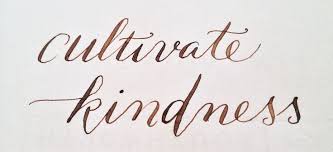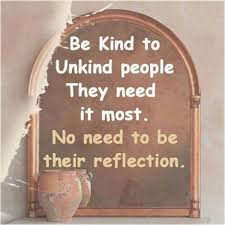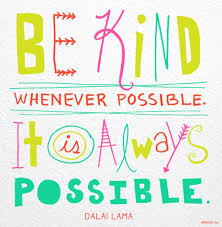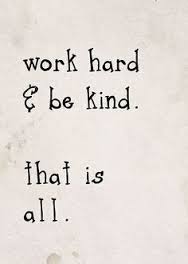
Where does kindness start?
I think it starts with kids. After all, the kindest adults are often the ones who were the kindest children. Or, at the very least, who were taught the principles of kindness as a child.
As with most things, kindness is best learned from the beginning.

Many parents are preoccupied with their children’s achievements, grades or happiness but how many place the same importance on whether their child is kind? If they had to choose between the attribute or the accomplishment, which would prevail?

One cold and snowy winter day when my son was attending university, he noticed an elderly woman struggling to get to the bus stop as the bus approached. He cried as he recounted how she would have been able to catch the bus if he had only flagged it down.
That was a proud moment as a parent… to see how it broke the heart of my child to know he had missed an opportunity to extend kindness to someone who had especially needed it.
“You will never have a completely bad day if you show kindness at least once.” Greg Henry Quinn
While I am extremely proud of my son and all that he has accomplished, I am proudest of who he is as a person. All the accomplishments in the world can’t make up for lack of character.
Cultivating kindness in our children is an investment that will always pay off.

Need some ideas?
- Make extending kindness toward others a priority for your child. Help them understand the importance of being kind to everyone, and hold them accountable.
- Create opportunities for your child to show kindness. Have them participate in the regular care of a pet. If you don’t have a pet, consider adopting a fish or a hamster. Taking care of another living thing encourages kids to think outside of themselves.
- Expand your child’s range of influence. Volunteer as a family. Fill a shoebox together at Christmastime for a needy child. Suggest your child make a card to cheer up a sick friend.
- Be your child’s role model and mentor. Kids learn kindness by watching the example of adults they look up to. As a parent, you hold a position of particular influence. There are so many teachable moments in your child’s life… take advantage of them.
- Read your child a story from the Bible about kindness, such as the one about the Good Samaritan. Ask thought provoking questions like, “If a mean kid got hurt, would you laugh and say, ‘It serves him right!’ or would you stop and help”? or “Has there ever been a time when you’ve avoided helping someone? What would you do differently next time?”

It’s far easier to teach kindness to a child than it is to unteach unkindness to a teenager or to an adult.
The Bible says to train up a child in the way he should go and that when he is old, he will not depart from it (Proverbs 22:6). Notice that it says ‘train up‘. Train up from a young age. Train up when your child doesn’t understand kindness. Train up when your child doesn’t feel like being kind.
The practice of extending kindness to others works to soften our hearts and change us, and the same is true for kids. You can’t routinely go out of your way to be kind to others, and not have it change you in fundamental ways. Even if you’re only going through the motions, the day will come when you realize that you do, in fact, genuinely care.
No matter what your age is, kindness matters.
I kid you not…








